Interview: TY
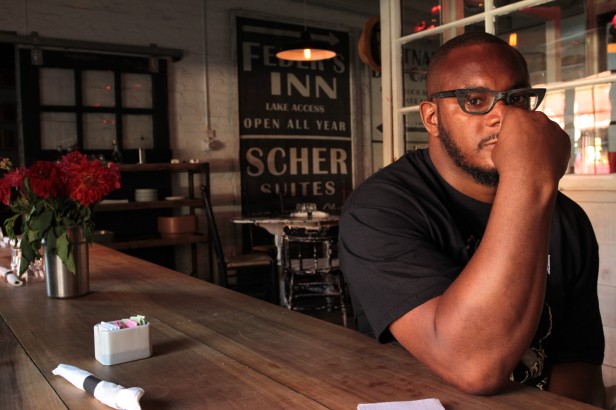
Interview: Daniel Muldoon
t: @SelfishD
Intro: Agent J
// Back when I was on Unity Radio in Manchester, I guested on Chris Jam’s breakfast show to talk about Groovement. I had to choose a track that represented what I believed Groovement to be about, and it was without hesitation that I turned to TY‘s catalogue. Even though we haven’t heard much from him this year (more on that in a minute), I still stand by what I said at the time: he’s one of the hardest working men in hip hop in terms of supporting the realness of the culture.
Groovement itself is named after a track on the album ‘Upwards‘ … listen.
Intrepid writer Daniel Muldoon follows up his excellent Peter Adarkwah interview with this revealing and frank chat with TY. Enjoy reading the words of a true artist and drop a comment!
– – – – – – – – – – –
How has your 2011 been?
2011 has been frustratingly quiet…
Why is that?
Because I’ve been doing lots of things, but it’s not things you’ll see.
Okay, so you’re doing stuff in the background?
Yeah so doing stuff, doing lots of music, but it’s not going to come out this year. I’ve been working on the EP, that’s not coming out this year. So people are kind of a little bit like, “What’s going on?”.
Yeah I guess people are like, “Where are you!”
People are like, “Have you fallen off?” It’s like “No!”, when I do things musically, I always do things to a certain quality. I could throw you out a demo now like what other people are doing, but that’s not what I do so…
So you want to get it right.
As right as I can get it.
I’m going to go back to the past for a tiny bit. I’m just going to talk about your early career. You started off with Shortee Blitz?
I started off on my own, then I came out as a group with ‘TY and Shortee Blitz’, but I was TY before that yeah.
So tell us about the progression of your musical journey?
Okay, really simple. I was a dancer first, hip hop enthusiast always, started going out, started being part of the scene, started rapping a little bit, and found that the rapping thing was really a life changing moment for me as far as developing into a personality, it actually helped my personality. So I came out, I started performing, doing stuff, and then through having a friend friends in the scene I hooked up with Shortee Blitz, we started doing stuff together, we started doing live shows and records together. So we did that for a while, then Shortee went of in a different direction, he wanted to focus on the radio, DJ’ing stuff and family and stuff like that.
So he did that, I kept on with the music and because of an interview I did with me and Shortee. When we were interviewed by Will Ashon, who is a journalist and also a label person of Big Dada, he asked me if I’d be interested in putting music out with Big Dada. At the same time I’d been asked to possibly sign with an American label by De La Soul, by Maceo from De La Soul, so I had to make a decision, and I chose to stay here.
Looking back on it, was it a good decision?
Yeah, I think so. I think I’ve always been about quality over quantity, and I think that what I was able to do was actually put out an album after album, after album of music where people could actually listen and be like, “You know what, TY’s actually got something”.
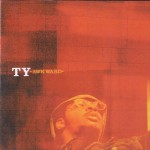
I think for me, in the whole career, I think the first album had to be made, producer led, so I had different producers, I had five or six producers on that record which was hell to deal with. From that point I had changed my mind, I was like “you’re not doing that no more”, because I played music anyway, I just wasn’t confident enough to make sure that we controlled the music from that point onwards. So me and Drew started working together, and I think the ‘Upwards’ album, one of the reasons why that was such a breakthrough record for me was that, that was the first time people actually realised “Oh…TY is really good” like “Wow, TY’s different, but he’s actually really focussed and well thought out”.
Before that, I was always someone that people were like “Yeah, he’s good you know, but I like this person over here.” So I’ve never been in the ‘in-crowd’, that’s one thing for me, so even when the UK hip hop era of like seven or eight years ago when everyone was talking about Roots Manuva or talking about Skinnyman, I was never someone that everybody grouped together with that at the top of the tree, I’ve always been doing my own thing and I don’t mind it, I’m not upset about it.
That leads me on to your relationship with producer Drew Horley. How did you meet and how instrumental is he in your music?
I knew Drew from one half of a group called ‘Psychic Phenomena’ and I asked him to do two songs on the ‘Awkward’ album, and we got on so well. He was the only producer that I could go and sit down with and be like “No, Yes, let’s do this, let’s do that” and when it came to mixing the record it was a pleasure working with him. So I was like “yo this is a type of dude that I want to work with.”
I want to work with someone who understands that I know what I’m doing, rather than someone who’s like “Nah, nah, nah, nah, just listen to me”, he’s not ego-led in that respect. So we started working together, and when we made the ‘Upwards’ album it really was two boys in a shed, banging out music, not caring what the genre was doing, what community was doing, what socially was acceptable musically, we really just closed our eyes to our city and just made music.
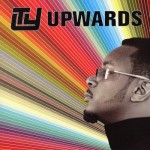
I think that’s the reason why ‘Upwards’ will always be one of peoples favourite albums because I was really pushing the boat out. I push the boat out on most albums but I think on that one I felt like I needed to really make a point. Whereas I don’t feel like that now, I’ve moved away from that feeling. I probably do need to make a point but I’ve grown up to a point where I don’t feel aggravated or I don’t feel… I’ve seen the world and I’ve been around and I still have people falling in love with my music everyday, so I’m not desperate if that makes sense.
I know what you mean.
There’s a desperation in music now. You know everybody’s putting mixtapes out all the time, freestyles out all the time, making videos of their freestyle. They’re copying the American format and I don’t believe in following the American format for hip hop music, I think you have to take from the tradition and do you own thing.
Do you get weary of how hip hop’s gone or of the pop charts?
That’s not hip hop. In fact, I’m weary of it being used.
The tagline ‘hip hop.’
I’m weary of a music industry that despises hip hop, then uses the title to sell their products when they want, but not showing the art form any respect, I’m weary of that.
I’m not upset with commercial music, we’ve always had it. I think the younger generation that are making that music need to pay attention to the idea of being on the inside and outside of the music industry, that’s all really.
I talked to Pete from BBE and asked him where he thinks the music industry is heading. Do you think about that?
What did he say?
He said it hasn’t changed it’s gone full circle. He said if you go back to the 60’s Motown, Staxx, they’re doing what we’re doing now. It’s just that people stopped and the jobs got split out and now it’s coming back together. Where do you think it’s going to go?
I don’t know. I know where I need to go though. I need become fully independent.
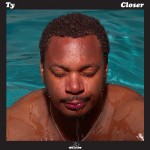
Okay, so without a record label?
Hopefully. I need to speak directly to the fans from now on. I need to be unafraid of radio criteria. I need to be less interested in making music that is going to be for a brother or okay for a radio playlist. It’s like “come on, that’s not how hip hop was made, it wasn’t made with these people in mind.”
Where is hip hop going?
I think where I see hip hop at the moment going is people are focussing so much on marketing, that I think that the actual products are pretty dry. The actual stories and the choice of music they made is quite dry because there’s so much marketing there.
Yeah, yeah, there is a lot of hype creation.
Yeah, there’s just too much. There’s a song called ‘Don’t Scandalize Mine’ by The Sugar Bears and that song was a natural hit, there wasn’t a PR person that made that song a hit, it was just a song where a DJ played it and everyone’s like “Wow, we gotta move” or “I feel something” and I believe that I belong to that strain of music. I belong to when people have to listen to a record to actually get it and see what’s been happening. That’s what I believe, that’s the avenue that I want to follow in.
Are you working with any artists at the moment besides Drew?
I don’t work that way. See the idea that you have to collaborate, that you have to work with some names for people to be interested in the music, this is part of the problem I think. I think that we haven’t just changed in regards to music structure or marketing, we’ve changed in regards to what we expect from an artist. So I’m deflecting that question by saying that I’m not actually interested in people being interested in who’s on the record. I’m not interested in that.
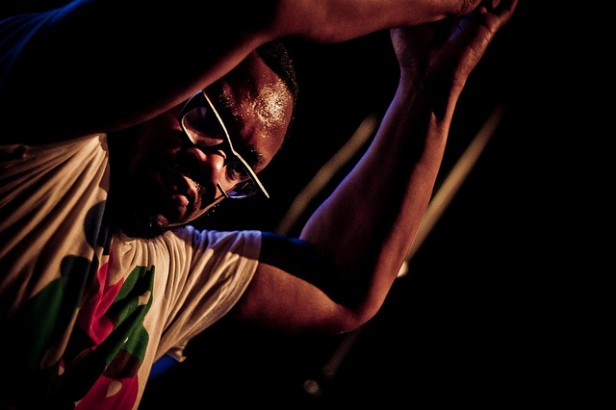
Not even creatively name dropping?
No, what I’m saying is the records are the most important thing, the making of the record, not who’s on it. So I’m not telling you something, I’m saying that I’m actually not interested in giving people information about who’s on the record because it works the wrong way, the right way or the wrong way. Let me explain – for example, in the last record I made a point of crediting everybody, so everybody said there’s too many features. There wasn’t too many features, it’s just that I made sure I credited everybody, so I featured Roses Gabor, I featured Carroll Thompson, I featured Erik Rico.
People were like “Wow, your album’s got too many features!”, I’m like “The album doesn’t sound like it’s got too many features. It’s an album, but because you’re reading it and you’re seeing it’s got this amount of people on it you’re thinking it’s got too many people.” Whereas when I construct, when I make music I’m thinking like a composer, so I don’t care what the name of the oboe player, I don’t care what the name of the string person is, you’re an orchestra and we’re working towards this song being finished, to the point where we say it’s a wrap, that’s what’s important. That’s how I’m viewing artists, MC’s, string players, vocalists, but I’ve noticed that when before I didn’t credit them, I wasn’t working with enough people, now I’ve credited them, I’m working with too many. So I’m realising that “actually you know what, I’ve got to take that away”, and that’s what I’ve done, I’m taking away the idea of me collaborating as being important, it’s not.
You’ve said in previous interviews that you enjoyed English and poetry at school, and I’ve noticed that you’re on the bill on a lot of spoken word events.
Sometimes, yes.
So what is it about spoken word and do you have a particular favourite poet or spoken work artist?
No. Actually yes, Roger Robinson, one of my favourites. It’s not the actual art form, it’s the audience. The audience that come to spoken word events, they’re open, they are more expecting a wider palette of performance from you than a rap audience. I enjoy it as much as the rap audience, I enjoy the space to perform to people that are expecting more. That’s kind of what is happening at spoken word events, it’s not anything too clever.
On the topic of words, have a you got a particular favourite verse of yours that you could share?
The thing about my music, the way I rap on records is that if you take the words away they do mean something, if you listen to it acappella it’s like “Ah, I see what you did there, it’s nice!” and I think that the leaf in using English or using words a little bit more cleverly than the kind of urban thing is not about trying to be snotty-nosed or snobbish, it’s more about being realistic. Even if you had a basic education, you had an opportunity to be around words, books, stuff like that, we speak languages, we use words like, you know, ‘presume’, ‘affable’, we use words, so why not use those words in hip hop. And for me what I made a point of doing, is really focussing on speaking eloquently in rap without pointing my finger, rather than going back to basics and swearing. So it’s not that I don’t swear in real life, it’s not that I don’t even swear on records, I do sometimes, but I try and not to rely on that idiom so much where I could be more creative. So on ‘I’m Leaving’, a song on ‘Special Kind of Fool’, I like that song because it actually conveys a complete feeling that you wont get on any other song on the album, it’s like “okay let’s talk about death…”
I found out about you when I was in my second year of university. I was working as the music editor at the Uni newspaper and BBE sent me the promo of ‘Special Kind of Fool’ – that’s where I basically fell in love with your music and ‘I’m Leaving’ is my favourite off the record.
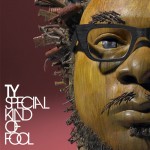
‘I’m Leaving’ is really real. Whilst we were doing the record my niece passed away. Whilst we were in the studio Drew’s Dad passed away, Mr Horley, and because through music we had become friends, I’ve watched my friend get married, you know I was at the wedding with his Dad, you know we always danced and you know we got pictures of us dancing at the wedding. And both times we were in the studio. For me hip hop music is about catapulting real life realisation, real life kind of standard moments into music, not waiting for an American person to do it. The difference between me and a lot of contemporary hip hop that you’re hearing is I’ve stopped waiting on American people to influence me, so production-wise, I am one of the first hip hop artists to be recognised and also to be working with a live band. I was doing it before anyone else was doing it, I was doing it before mainstream artists were doing it, before they thought it was cool. My thing is about, just, you’ve gotta take the tenants of whatever hip hop culture is but you can’t just disregard the tenants. Once you are fully comfortable with that, you should be able to take it to another level. Like okay, why sample James Brown, let’s sample George Formby, or let’s sample Elvis Costello or let’s sample ‘It Ain’t Half Hot Mum’, because I’m from here, you get what I’m saying, like we have a whole set of examples. I started a group on Facebook called ‘The Beat Inn’ and the premise behind that was that I realised something, I realised there was a hole, the hole was, there are hundreds of thousands of people that can produce and make music, obviously they all can’t fit into what’s being played on the radio but they still deserve to be seen, to be admired, or be appreciated and to be communicated with. So we created this format where basically everybody samples the same song or shows us their music or shows us what they’re making at home… crazy, crazy.
Now I know we’re going to have to go here, a lot of people want to know where you are at with your next album. I thought ‘Special Kind of Fool’ was the same realness of ‘How I Got Over’ by The Roots, like it was that kind of vibe. So where are you taking the vibe now on your next album?
I’m changing the parameters, I’m not doing an album, I’m doing EPs. The reason why I’m not doing an album is because with an album what happens is you can get kind of caught up in the laboratory for a while, trying to find the hits, the fillers, the album songs, whatever. What I’m trying to do right now is just to crunch it down because I’m no longer looking at a record company to be… I’m not against being signed by a label, but as far as I can see the route seems to be for me to go independent. I think now that making an EP is more about giving my audience really what they want sooner, and what they want is an EP. They don’t need an album because some people loved the last album, a lot of people didn’t buy it. A lot of people did buy it, but a lot of people didn’t. So what happens is either way, I’m not in the machinery for everybody to really see that something’s great. So if I can give them short sharp shots, I think that would be better, I think it would be better for me as well because every time you do an album a part of you dies because you basically (TY mimics pulling his heart out and putting it on a plate), you’re putting that into your music. I think for me now it needs to be four or five songs… bang, let’s shorten the spam, let’s see if we can get more of a response to that shortened spam, that’s where I’m at.
Anything else you’re working on?
One of the things for me now was that the way I used to work is I would always be focussed head down in the music. I’ll focus on the music, focus on the mixing, focus on the production, focus on the mastering, and then when I put the record out, I take my hands off, but now I want to take it to another level where I’m focussing on the aspects of the video, like working with people who do the video, so there is the same level of attention…
So you’re working on an entire creative project.
Film. Like a film. Also we’re working on getting a documentary together because I feel like I’m invisible and I feel like if I give people the story where people actually really get a window on to what TY’s doing they might actually be amazing instead of thinking that he’s not here because they don’t hear a record.
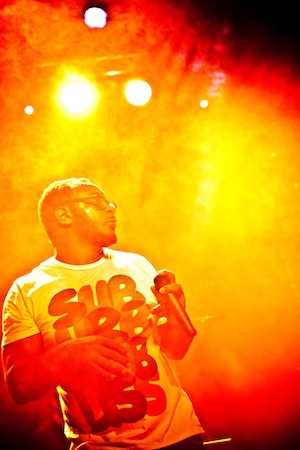
I’ve got a song called ‘Well, Well, Well’ that I think you should look out for, it’s different, it’s almost four to the floor, but it’s done in a TY way, so it’s got more depth to it, it doesn’t feel like that kind of shiny, digital, it feels almost tribal, but the music and what’s happening in it, or where it’s going, it’s one of my favourite moments at the moment, it’s clever, it’s clever.
I can’t wait!
The drumming, the use of drumming in that song is so heavy that it may embarrass people that make house because obviously some people that make house is a very simple way, but the way we’ve done this is that it’s got so much going on, that it’s like “wow, that’s a deuced piece of music!” rather than (beat boxes four four beat and shouts ‘cowbell!’) I’ve liked what I’ve done with it. I don’t mind if it becomes commercial, but it’s got a bit more depth to it.
I interviewed a couple of artists about their most magical experiences involved in music. Can you pinpoint some magic moments in your career that you could share?
Is it about me or is it about me being around other people?
It can be you at a gig, it could be producing a beat…
I visited Mos Def in New York a couple years ago and he’s working on a particular song, and the song was ‘Umi Says’, one of his biggest songs, I was in the studio when he did that.
Wow. I guess you immediately knew it was a special moment.
Yeah, it was definitely a magic moment. I remember it. It’s funny because when I saw the video, the video kind of reminded me because the studio did look like the studio that’s in the video. That was a good moment.
So are these magic moments, moments that happen in the studio or live or…
It’s you in the company of someone making great music, or it could be anything. The main anchor in that question is music.
Carroll Thompson. Being in the studio with her was absolutely an honour, me and Drew felt like school boys in the presence of a superstar. In music in the UK, in ‘urban music’ in the UK, as things are shifting, as you can see it’s becoming very diluted and its not special anymore, it’s very weak. Part of that reason is because there is a foundation in the music, there is a cultural element to music that you should not ignore, we’re ignoring it now. Carroll Thompson almost comes from one of the last eras of having voices in our music that actually are a flagship representation of black Britishness in music, that you can hear and be like “wow, see that’s not a West Indies thing, that’s an English black West Indies thing” and because of Lovers Rock and stuff like that. I grew up with going to house parties and all that sort of stuff, so you hear your hip hop, you hear your soul, then you hear your Lovers Rock, it’s time to dance, slow dance, time to take a number “Hello how you doin’, what going on, where do you live?”, she’s part of that for me.
For me to be able to fork her son into allowing her to actually be interested in the idea and her coming into the studio and doing that was great. Instantly once she started singing her vocal me and Drew looked at each other and we were like “You see, this is like magic” – not magic, “oh, her voice is amazing”, it’s magic as in “you do not hear that pedigree of singer anymore in mainstream culture” and I think that moment made me realise that I’m on the right track, even if the music industry pretends that I’m not relevant, I’m on the right track. All of my records, if you look at them and you listen to them or of you even read the credits and go and find the people that are on the records, you’ll find a whole new world of music, every time.
So you’re a good source for good music.
So you know, if you listen to one song there will be Joy Jones “Who’s that?” “Oh she’s over here”. “Eric Appapoulay, who’s that?” Eric Appapoulay is the person that made Plan B hot, is the producer for Plan B. Orin Walters, Bugz In The Attic, she’s the girl on ‘Wait a Minute’ and the girl on ‘You’re So Hot Hot’ on the first album, so I’ve always had a keen eye for quality music.
Jason Yarde is a supreme horn legend now that people are recognising, James Yarde, producer of Terri Walker, it goes on and on. These people are involved in my records, you know, Eska, I’ve always somehow had an ear for working with a particular quality of musician and making records that they’ll be proud of too, and for me that’s why I’m happy with where I’m at because people are realising “TY is a musician, like TY’s like a musician musician.” So basically, the way I approach music is something musician’s respect, not just rappers, not just radio, so that’s the basis of how I function musically, it’s serious. So I wont have 55 people in the studio, there’s no need for that, you can be there at the listening session, I don’t need you in the studio, I don’t need to be distracted, I need to think. We think about every second of the record, at one minute 15 “what’s happening here? Is this okay? Does it need to change?”, that’s how we think about music, it’s not a slap a vocal over a beat thing. Some songs have moods that, like on one of the songs I have, ‘Hustle Hustle’, I use a harmonica on there, and it’s just using a harmonica like that, it’s like no one does it! So why do you do it? Because it can be done. I can’t wait for Common or Mos Def or Talib Kweli to do it.
Just a quick question about Common’s new album ‘The Dreamer, The Believer’. Have you given it a listen? What are you feeling about it?
It’s cool, it’s better.
It’s interesting that it’s gone full circle and Common went back to the producer that made ‘The Resurrection’.
It’s about time.
I’ve got a silly question! If you were exiled to a desert island. Which three famous people would you invite and why?
Chuck D.
Why is that?
Just so I can have a conversation without being threatened or upsetting people. I can’t upset him. Bruce Lee because I want to get fit, I wanna train and Sanaa Lathan. She’s a black actress who was in ‘Love & Basketball,’ the film, she was the female interest in that, and she’s just hot and I wanna have kids and I want only one option! (laughs) She can either get with Chuck or Bruce Lee or get with me, I think we know who’s going to win.
You’ll get Bruce Lee to teach you all the moves and then…
I’m going to look ripped on that island!
If she tries it on with Bruce Lee then you’ll use the moves he taught you on him!
I’m going to be the only one for her.
Well thank you TY, can’t wait for your new stuff!
Thanks.
TY Links:
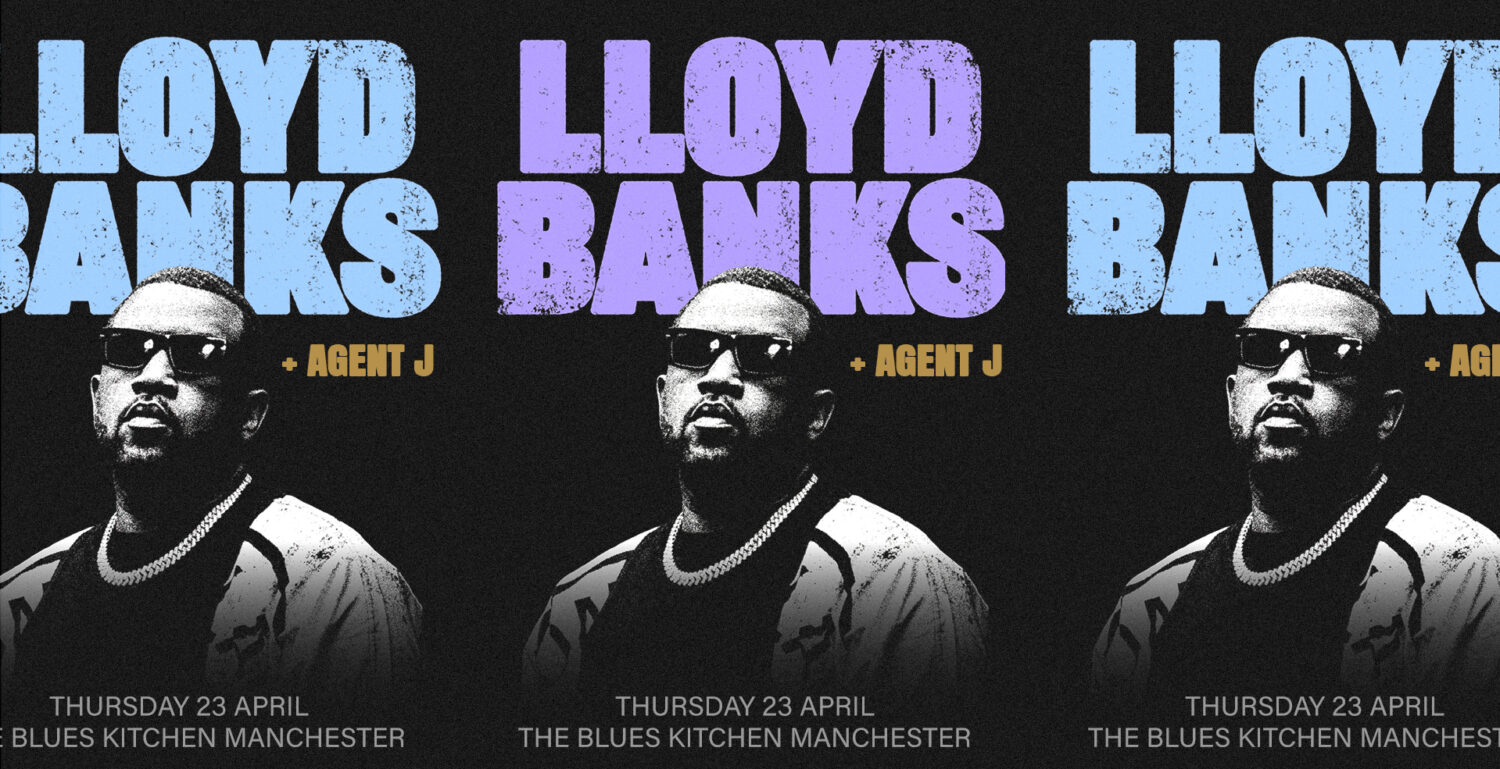

Fantastic to get update with Ty news after his fantastic album Special Kind of Fool nice one Daniel
a great interview… tell it how it is 🙂
Pingback: INTERVIEW : TY « Indulging in music
Pingback: POST: TY picks a few songs that influence him « Indulging in music
Great interview J. I fuckin love ‘i’m leaving’ and the groovment track too. Good to know a bit of the story behind the I’m leaving track.